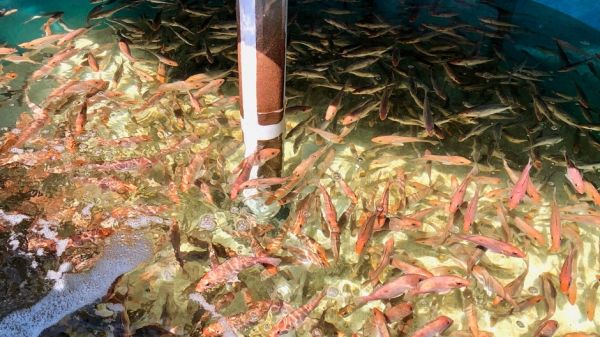A special edition of the Rosenstiel School’s series offers a window into its aquaculture program, which collaborates with global businesses to improve the thriving industry.
Aquaculture, also known as the science and business of rearing fish, shellfish, and seaweed for food, has become so prevalent that it now provides more than 55 percent of the seafood for human consumption worldwide. About 90 percent of seafood consumed in the United States is imported, and the vast majority is farmed.
The industry is only projected to increase, as the demand from consumers looking for a healthy protein continues to rise. In Florida, at least 46 fish farms produced close to $4 million worth of fish in 2018, including catfish, tilapia, striped bass, and shrimp, according to the state’s Department of Agriculture.
Daniel Benetti Benetti
The University of Miami Rosenstiel School of Marine and Atmospheric Science's Aquaculture Program helps support this bourgeoning industry with innovative, sustainable, research-based strategies for growing fish. Professor Daniel Benetti and research assistant Professor John Stieglitz lead the program. They work with graduate and undergraduate students to optimize all stages of the fish production cycle—from eggs all the way to market-quality seafood. Supported by government grants and through research partnerships with private companies, the program aims to assist in providing wholesome seafood for the world’s growing demands, while maximizing coastal resiliency.
Continue reading at University of Miami.
Image via University of Miami.


